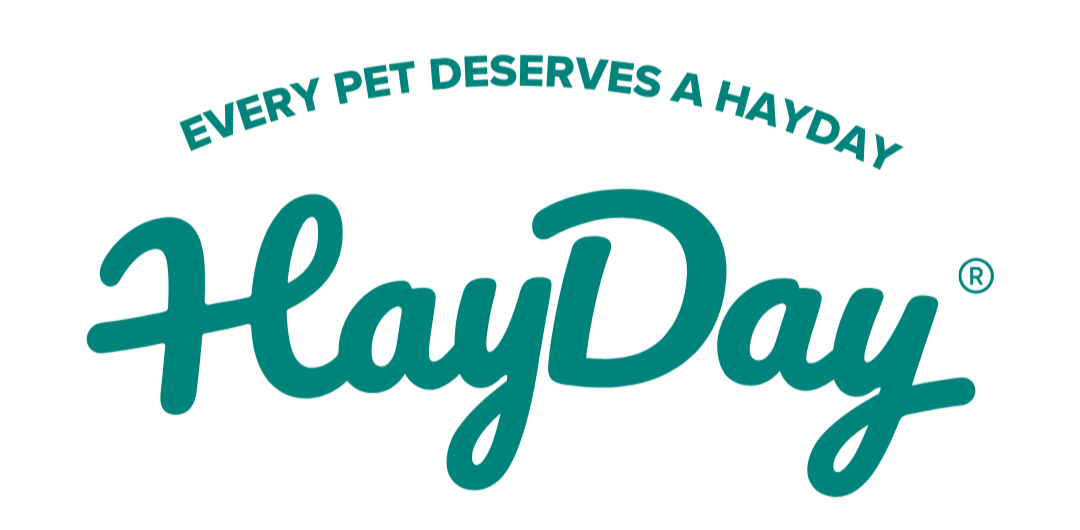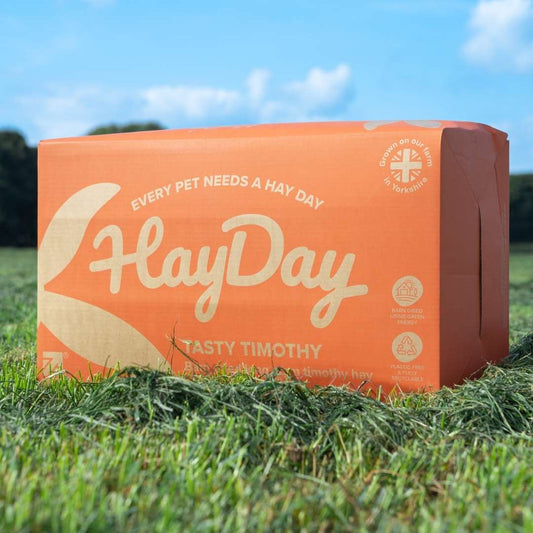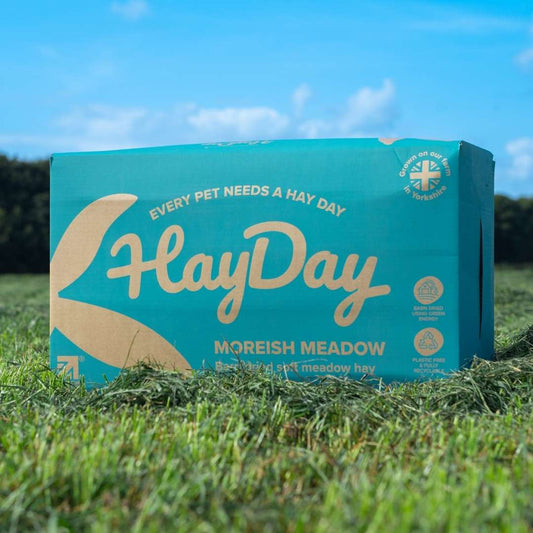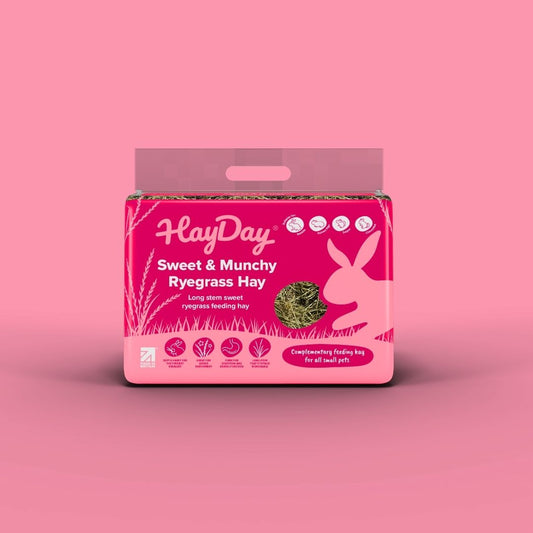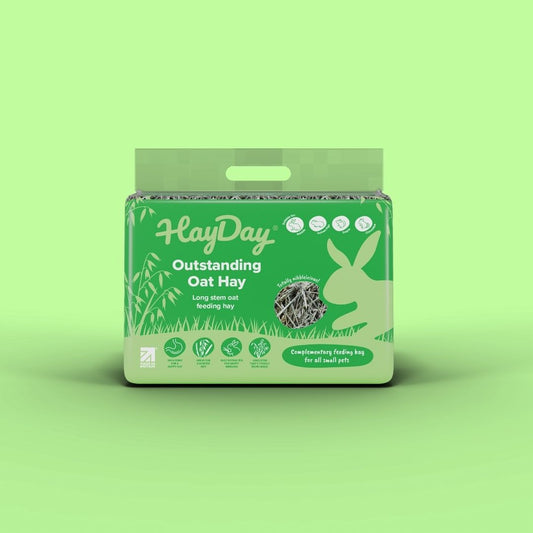Have you ever wondered if rabbits can eat parsnip as part of their diet?
Whilst parsnips can be a tasty treat for your furry companion, they should be given in moderation due to their high sugar and starch content.
Our experts at HayDay will guide you on how to safely incorporate parsnips into your rabbit’s diet, the benefits and risks they carry, and how to maintain a balanced and healthy diet for your bunny.
For a healthy rabbit diet > Click here for premium, barn dried hay.

Can Rabbits Eat Parsnips? - Overview
-
Parsnips are safe for rabbits if consumed in moderation due to their high sugar and starch content, which can lead to obesity and digestive issues.
-
Parsnips offer essential nutrients beneficial for rabbits, like vitamins and minerals, but their high glycemic index could cause issues if overfed and require careful feeding practices.
-
While parsnips can be part of a rabbit’s diet, they should be served raw, in small quantities, and not as a replacement to the fundamental diet of high quality hay, pellets and fresh greens to maintain a healthy and balanced diet.
Feeding Your Rabbit Parsnips: Yes or No?
Yes, rabbits can eat parnsip but they should only do so sparingly. But like many human foods rabbits can eat, due to their elevated sugar and starch levels, parsnips are better served in moderation alongside their everyday recommended diet.
Their substantial carbohydrate content can contribute to weight issues such as obesity if fed in excess (USDA, 2024).
Nutritional Breakdown: Are Parsnips Good for My Rabbit?
Parsnips offer essential nutrients to a rabbit’s diet, but their high carbohydrate content requires careful moderation.
Here are the nutritional values of a 100g serving of parsnips.
-
Calories: 75Kcal (~0.3MJ)
-
Carbohydrates: 18 grams
-
Fibre: 4.9 grams
-
Protein: 1.2 grams
-
Fat: 0.3 grams
Source: USDA, 2024
Preparing Parsnips for Pet Bunnies
To ensure your rabbit stays healthy, it’s vital to properly process parsnips before offering them to your pet bunny.
It’s important to cleanse and peel them thoroughly prior to feeding in order to eliminate possible toxins and chemicals from pesticides or any residual soil.
After adequately prepping the parsnips, they should be chopped into tiny pieces easily consumable by your rabbit. This helps prevent choking hazards and promotes ease of eating for your furry friend.
The Debate Around Parsnip Tops
There’s a debate about whether rabbits eat parsnip tops or not. You may have read reports that certain parts of parsnips, such as leaves and tops, may cause skin irritations in bunnies. This isn't usually the case.
If you are unsure though, as with every new food, gradually introduce parsnip tops in moderation, observing the rabbit’s reaction to confirm they are properly digested. And don’t forget to clean the tops to remove any possible residues.
How Much Parsnip Should I Feed My Rabbit?
When it comes to feeding parsnips to your bunny, size and frequency matter. Ideally, limit the serving of parsnips to small amounts no more than once per week.
A general guideline is to adhere to half a tablespoon of vegetable per pound of rabbit’s body weight per day, including parsnip as just a part of this vegetable mix. This will most likely work out about 1 slice.
Bear in mind maintaining a balanced diet for rabbits is vital, and while the high fibre content in parsnips can be beneficial, it should supplement other fibre sources without creating an imbalance.
Timothy Hay is the perfect high fibre option for your rabbit Click here >
Safe Alternatives to Parsnips for Your Rabbit
Although parsnips can be incorporated into your rabbit’s diet, diversifying their meals with other safe and nutritious options is very important. Healthy leafy greens and herbs that can be fed to rabbits include:
-
Basil
- Bell Peppers
-
Bok choy
-
Coriander
-
Dandelion greens
-
Dill leaves
-
Mint
-
Mustard greens
-
Parsley
-
Radicchio
-
Raspberry leaves
-
Spinach
-
Swiss chard
-
Romaine lettuce
-
Butterhead lettuce
-
Bibb lettuce
Non-leafy vegetables like, broccoli, Brussels sprouts, cabbage, carrots, and celery are also great additions to a rabbit’s balanced diet.
Moreover, rabbits owners can also forage for greens, which is a great way to simulate what rabbits would find in the wild: apple leaves and twigs, blackberry leaves, chamomile, calendula, chickweed, cleavers, hawthorn, plum leaves and twigs, sow thistle, and sunflowers, offering a diverse range of tastes and textures.
Summary
In conclusion, parsnips can be a part of your rabbit’s diet, but they should be fed in moderation. While they offer many health benefits, excessive consumption can cause health problems, including digestive issues and obesity.
Serve them raw, well-cleaned, and in small, manageable pieces for the best dietary results. Remember, a varied diet is key to maintaining your rabbit’s health. Happy feeding!
Frequently Asked Questions
Can guinea pigs eat parsnips?
Yes, guinea pigs may consume parsnips as an infrequent treat since their high sugar content and the possibility they present for digestive complications mean these vegetables should not constitute a staple in their diet.
Can I feed my bunny turnips?
Yes, you can feed your bunny turnips. Turnips are generally safe for rabbits to eat, including both the roots and the green tops, but it’s important to introduce new foods gradually to avoid digestive issues.
What vegetables can rabbits not eat?
Rabbits should not eat iceberg lettuce, which can be harmful, or vegetables from the onion family, such as chives, leeks and onions. If your rabbit ingests these, seek immediate veterinary assistance.
Relevant Advice
References
Animal Trust (2024) What can rabbits eat? [Online]
USDA (2024) FoodData Central. [Online]
